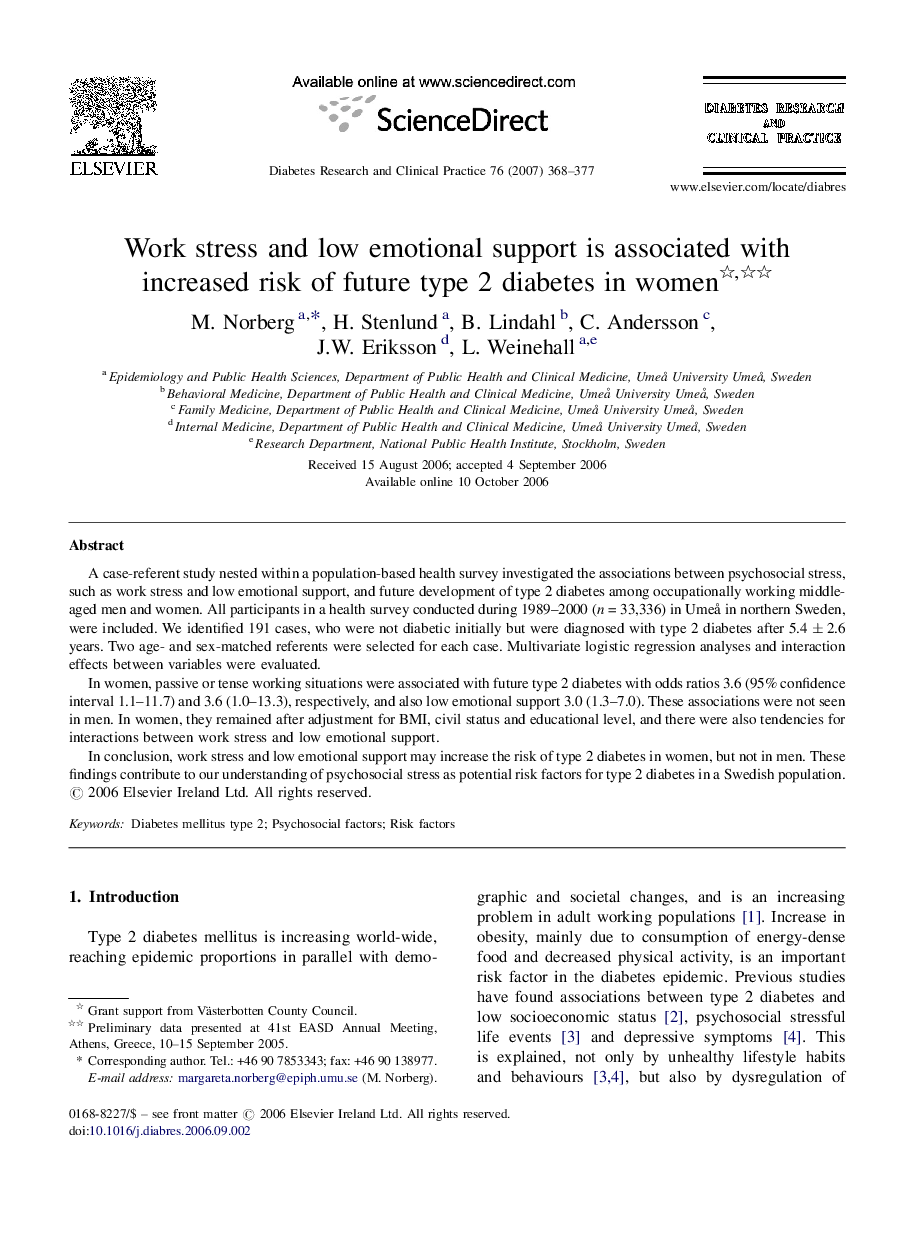| Article ID | Journal | Published Year | Pages | File Type |
|---|---|---|---|---|
| 2798923 | Diabetes Research and Clinical Practice | 2007 | 10 Pages |
A case-referent study nested within a population-based health survey investigated the associations between psychosocial stress, such as work stress and low emotional support, and future development of type 2 diabetes among occupationally working middle-aged men and women. All participants in a health survey conducted during 1989–2000 (n = 33,336) in Umeå in northern Sweden, were included. We identified 191 cases, who were not diabetic initially but were diagnosed with type 2 diabetes after 5.4 ± 2.6 years. Two age- and sex-matched referents were selected for each case. Multivariate logistic regression analyses and interaction effects between variables were evaluated.In women, passive or tense working situations were associated with future type 2 diabetes with odds ratios 3.6 (95% confidence interval 1.1–11.7) and 3.6 (1.0–13.3), respectively, and also low emotional support 3.0 (1.3–7.0). These associations were not seen in men. In women, they remained after adjustment for BMI, civil status and educational level, and there were also tendencies for interactions between work stress and low emotional support.In conclusion, work stress and low emotional support may increase the risk of type 2 diabetes in women, but not in men. These findings contribute to our understanding of psychosocial stress as potential risk factors for type 2 diabetes in a Swedish population.
